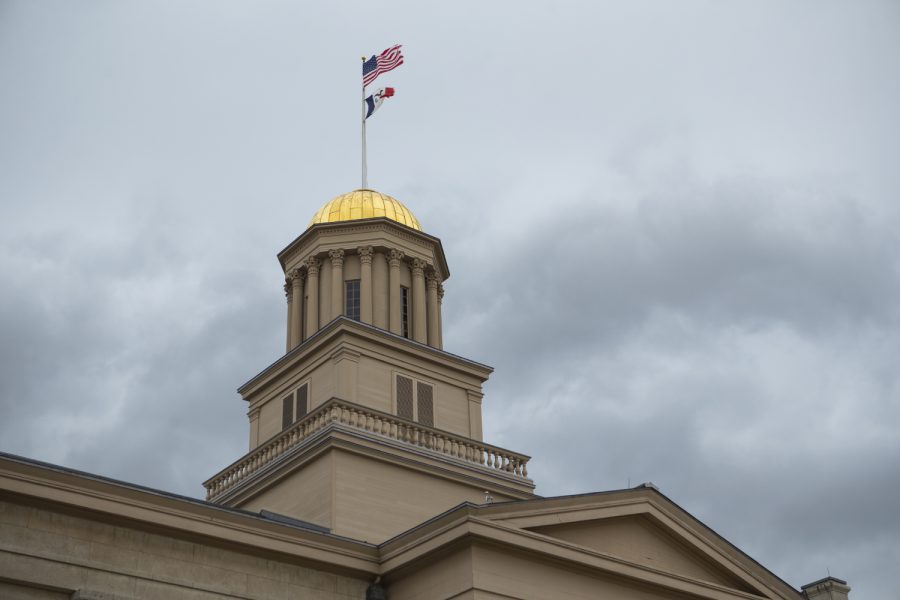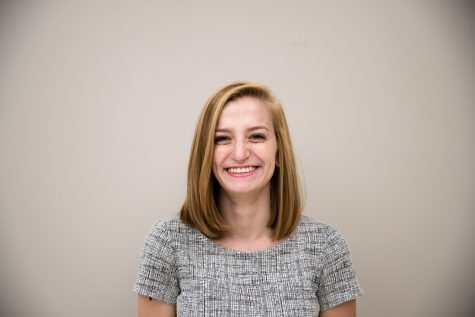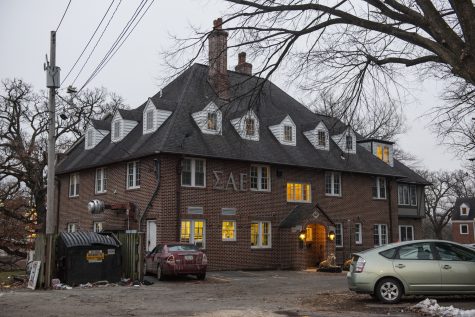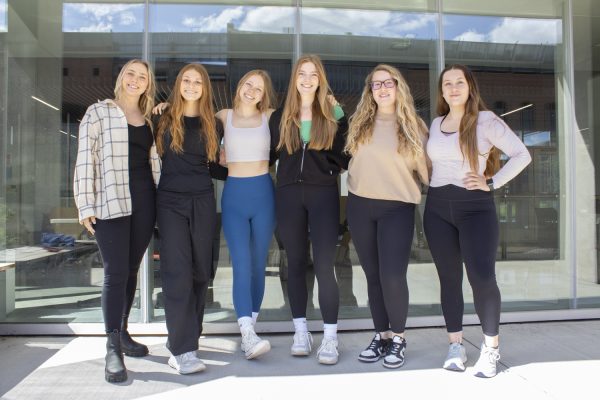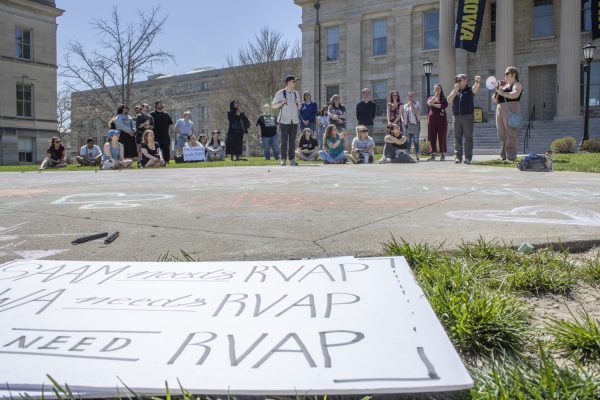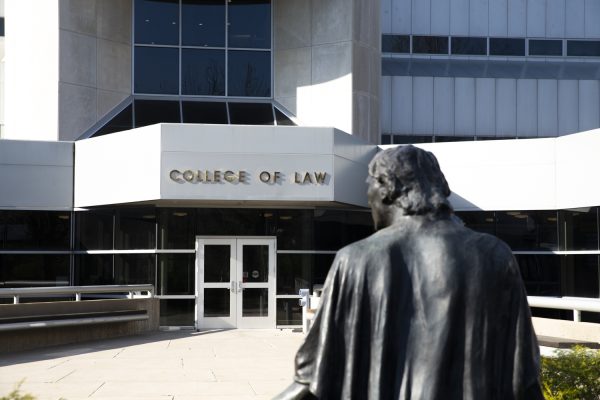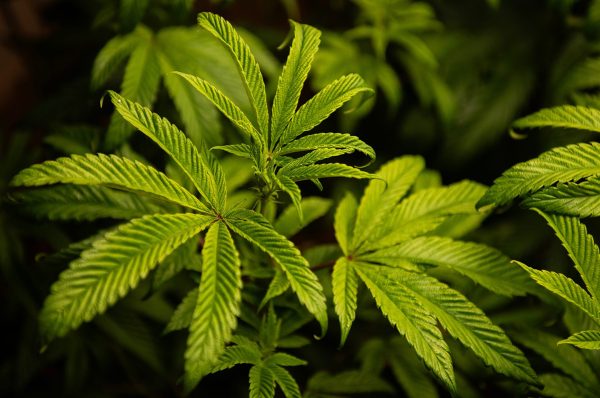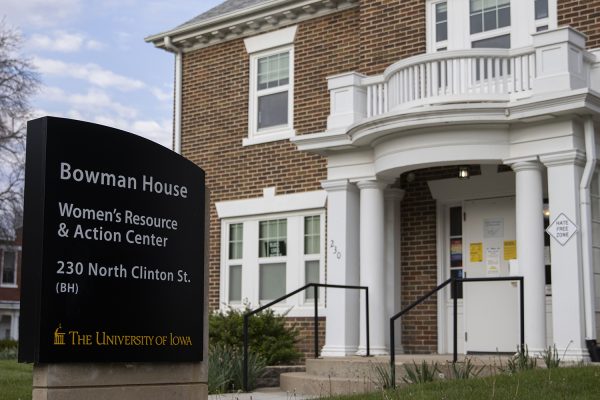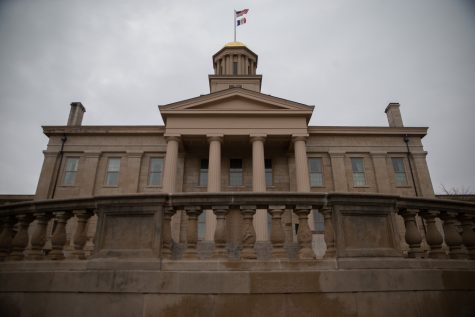State Board of Regents discuss campus crime statistics, UI stalking cases double
While the University of Iowa’s annual crime statistics report has yet to be published this year, Public Safety Director Scott Beckner reported a decrease of most crimes, but a steep increase in stalking cases at the state Board of Regents meeting Tuesday.
The Old Capitol is seen on Thursday, March 12, 2020.
November 10, 2020
The University of Iowa Public Safety Director Scott Beckner announced this year’s Annual Security Report is not completely finished, but the university has seen an increase in stalking and robberies, when he spoke with the state Board of Regents on Tuesday.
Alongside Iowa State University and the University of Northern Iowa’s Chiefs of Police, Beckner disclosed campus crime statistics for 2019 to the regents at a virtual committee meeting. He said the UI’s official report is mostly completed, but the university is waiting on a clarification from the U.S. Department of Education on a specific assault case before it is finalized.
The annual reports are due to the Department of Education on Oct. 1 every year, but in August, the department pushed the deadline back to Dec. 31, 2020.
Beckner informed the regents that the UI has seen a significant increase in stalking cases, while most other crime statistics have gone down.
“You’ll see in our report when it comes out that our robberies, we had zero in [20]18 and in [20]19 we went up two,” he said. “There was a slight increase in that…domestic and dating violence is down this year, but stalking, although is significantly up. Our stalkings almost doubled this year.”
Beckner said sexual assaults, burglaries, and motor vehicle thefts are also down this year. Liquor violations have remained the same, he said, and most violations are in residence halls.
According to the UI’s 2019 ASP, there was a decrease in stalking offenses between 2016 and 2018 from 75 to 59 cases on campus. There were five non-campus reports in 2018, which increased from two non-campus reports in 2016 and 2017. The 2020 report has yet to be published.
When asked by the regents why he thought stalking cases increased over the last year, Beckner said he believes the increase is due to more individuals being educated about what stalking is.
He said the UI students working for student security and in the residence halls are more attuned to stalking and are educating other students, which has led to an increase in stalking reports.
While discussing the report, Beckner discussed how the UI Police Department handled protests and vandalism in the summer and how they will move forward. After the university paid $1 million to repair campus buildings following protesters’ spray painting graffiti on university property, he said policies have permanently changed following repairs.
“We are arresting anyone that spray paints now which is a different approach to what we had in the summer,” he said. “Once we fixed [the damage] and spent $1 million repairing it, we weren’t going to allow it to happen again.”
Following the initial universities’ reports, the regents asked the UI, ISU, and UNI about how Iowa universities’ police departments are handling mental health and suicide during COVID-19.
ISU Chief of Police Michael Newton said there has been a significant increase in calls regarding mental health and depression on campus. He said ISU’s police department has extended their mental health efforts in the past few years with the hiring of a full time mental health advocate and a therapy canine.
Because of this change, he said the response plan for such calls is not necessarily a law enforcement one – which has been significantly more helpful this year.
“We’ve seen a definite increase in our mental health calls for service,” he said. “We have seen a significant increase in suicidal ideation and suicide attempts. One of the things we’re overwhelmingly hearing, and I think your campuses probably are too, is students are craving engagement and there’s a lack of engagement. I think in our next spring semester we have to find a way to engage our students because they were meant to have that human interaction.”
Beckner was unable to comment on how the UI is handling mental health during COVID-19 due to the time constraints of the committee meeting.
Though he is retiring at the end of the year, Beckner also focused on what the UI’s police force will look like in the future. He said the department is focusing on transparency in order to improve its relationships with the student body.
“We have talked to our student leaders about the future of our police department with all that’s happening and we’ve started a new imagining committee through the president and that’s going to take on a six month review process to see where we are heading in the future,” Beckner said.



